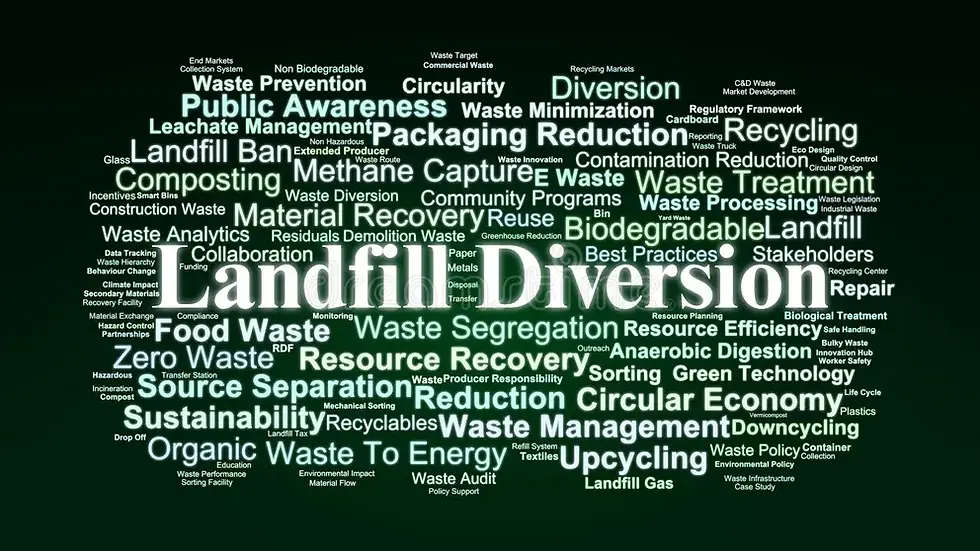Why Divert Waste From Landfills if Dumping is Cheaper?
- Mische Lawrence

- Sep 5, 2025
- 2 min read
We all know that sending waste to landfill is the cheapest option — at least, on paper. Recycling, reusing, and other waste diversion initiatives often come at a higher financial cost upfront. So why do it? Why not simply dump everything into landfill and be done with it?

The answer is simple: landfilling may be cheap today, but it comes at a very high long-term cost — for businesses, communities, and the environment.
1. Landfills are running out of space
South Africa (and the world at large) is running out of landfill space at an alarming rate. Building new landfill sites is costly, time-consuming, and politically unpopular. By reducing what goes to landfill, we extend the lifespan of existing sites — buying time for sustainable solutions.
2. Landfills create environmental risks
Landfills aren’t just unsightly — they release greenhouse gases like methane, contaminate groundwater through leachate, and harm biodiversity. Every ton of waste diverted through recycling or reuse prevents these long-term environmental hazards.
3. Recycling supports the circular economy
Recycling transforms waste into resources. Instead of consuming more virgin materials, recycling keeps valuable materials — like metals, paper, plastics, and glass — in circulation. This reduces dependence on raw resource extraction, saves energy, and helps build a more sustainable economy.
4. Future costs will be higher
What looks “cheap” now is actually a hidden liability. As environmental regulations tighten, carbon taxes expand, and landfill gate fees rise, businesses that rely solely on dumping will face much higher costs in the future. Recycling and waste diversion strategies future-proof your business against these risks.
5. Reputation and responsibility matter
Customers, investors, and regulators are paying closer attention to sustainability. A company that makes no effort to reduce its landfill footprint risks reputational damage and lost opportunities. Waste diversion isn’t just a compliance box to tick — it’s a way to demonstrate genuine commitment to environmental responsibility.
The Bottom Line
Yes, recycling may cost more than landfilling today — but the real question is: what is the cost of doing nothing?
When you factor in the environmental, social, and long-term financial consequences, diverting waste from landfill isn’t just the responsible choice — it’s the smart choice.
Call us at info@jumperwaste.co.za to reduce your impact on landfill.




Comments